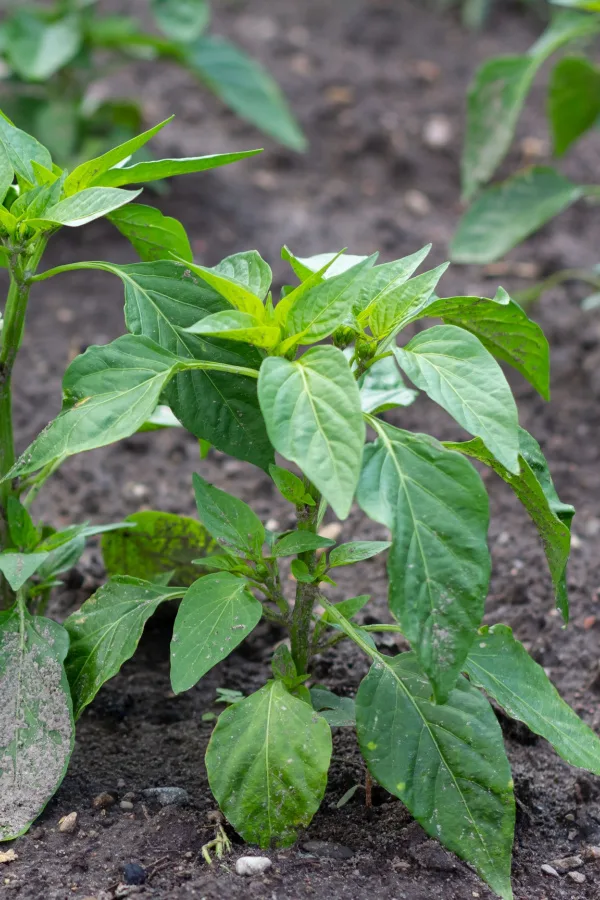Find Out the Best Fertilizers for Peppers: Top Picks for Optimal Growth
Find Out the Best Fertilizers for Peppers: Top Picks for Optimal Growth
Blog Article
Organic Vs. Synthetic Fertilizers: Which Is Best for Nurturing Healthy Pepper Plants?
In the realm of supporting healthy and balanced pepper plants, the option between artificial and natural fertilizers stands as a crucial decision with far-ranging ramifications. While both alternatives goal to offer necessary nutrients to support plant growth, the subtleties of their influence on the soil, plant wellness, and the setting stimulate a debate that mirrors throughout the horticulture neighborhood. Comprehending the distinct benefits and potential challenges of each plant food type is critical for pepper cultivators seeking to maximize their returns while maintaining a lasting and eco-conscious approach.
Advantages of Organic Fertilizers
Organic plant foods provide an environmentally-friendly and sustainable approach to beneficial pepper plants, giving necessary nutrients without making use of artificial chemicals. These natural plant foods are stemmed from organic resources such as compost, manure, bone dish, and algae, advertising dirt wellness and biodiversity. Unlike synthetic plant foods, organic options launch nutrients slowly, making sure a constant and balanced supply for pepper plants to prosper.
One considerable benefit of organic fertilizers is their ability to enhance soil structure and water retention. By improving dirt health and wellness, natural fertilizers advertise beneficial microbial activity, which helps in nutrient uptake by pepper plants. Furthermore, natural plant foods decrease the threat of chemical run-off, securing water resources from contamination and protecting the atmosphere.
In addition, natural plant foods contribute to long-lasting dirt fertility by advertising the development of useful dirt organisms. These organisms assist damage down organic issue, launching nutrients in a type that is easily obtainable to pepper plants. best fertilizers for peppers. By fostering a healthy dirt ecological community, organic plant foods sustain sustainable pepper farming techniques that profit both plants and the setting
Downsides of Artificial Plant Foods
Artificial plant foods, in comparison to their natural counterparts, position numerous downsides when utilized to nurture pepper plants, impacting both plant health and wellness and environmental sustainability. One major downside of synthetic plant foods is their propensity to leach nutrients from the soil rapidly.
Furthermore, the overuse of synthetic fertilizers can add to water air pollution. Excess fertilizers not soaked up by plants can wash away into water bodies, bring about eutrophication, where algae flowers deplete oxygen levels in the water, harming aquatic life. In addition, synthetic plant foods are commonly originated from non-renewable sources, such as fossil gas, adding to carbon discharges and ecological our website destruction during their manufacturing.
Nutrient Absorption Comparison
When contrasting natural and artificial fertilizers in terms of nutrient absorption, organic plant foods have the benefit of providing a more balanced and slow-release resource of nutrients. Organic fertilizers contain a selection of macro and micronutrients that are not only helpful for the plants yet additionally promote healthy and balanced soil microbial activity, which assists in nutrient uptake.
Furthermore, natural plant foods improve soil framework and water retention capacity, allowing pepper plants to access nutrients extra efficiently. This improved dirt top quality facilitates origin advancement, allowing better nutrient absorption. Synthetic fertilizers, although initially enhancing plant growth because of their high nutrient focus, may impede lasting nutrient absorption by degrading dirt health and wellness in time.
Ecological Influence Factors To Consider

On the other hand, artificial plant foods, although commonly even more focused and quickly offered to plants, can have damaging effects on the setting if not used correctly (best fertilizers for peppers). Their manufacturing requires high energy inputs, causing greenhouse gas discharges and adding to climate modification. The drainage of excess synthetic plant foods can contaminate water resources, leading to eutrophication and damaging aquatic environments.
Ideal Fertilizer Practices for Peppers
When feeding pepper plants, maximizing nutrient uptake and lessening environmental effect are key considerations. To attain this, it is vital to follow ideal plant food techniques tailored to the particular needs anchor of pepper plants. One important practice is to do a soil examination prior to using any type of fertilizers. This test can identify the pH level of the dirt and identify any nutrient deficiencies, leading you in picking the most appropriate fertilizer solution.
An additional crucial technique is to feed pepper plants at the correct time. Generally, peppers profit from getting plant food at planting and after that again when they begin to blossom. Over-fertilizing can result in nutrition imbalances and harm the plants, so it is essential to comply with advised application rates.
Furthermore, choosing a well balanced fertilizer with an NPK proportion that suits pepper plants' demands is essential. Inevitably, integrating synthetic and natural fertilizers judiciously can aid support healthy and balanced pepper plants while lessening ecological impact.
Verdict

Organic fertilizers supply an environmentally-friendly and sustainable technique to beneficial pepper plants, providing necessary nutrients without the usage of synthetic chemicals. Unlike synthetic plant foods, natural options release nutrients slowly, making certain a steady and balanced supply for pepper plants to prosper.
Artificial fertilizers, in contrast to their natural equivalents, posture various drawbacks when utilized to nurture pepper plants, influencing both plant wellness and ecological sustainability. When comparing organic and synthetic plant foods in terms of nutrient absorption, natural plant foods have the benefit of giving a more balanced and slow-release source of nutrients.Additionally, natural plant foods improve dirt framework and water retention ability, allowing pepper plants to access nutrients more successfully.
Report this page